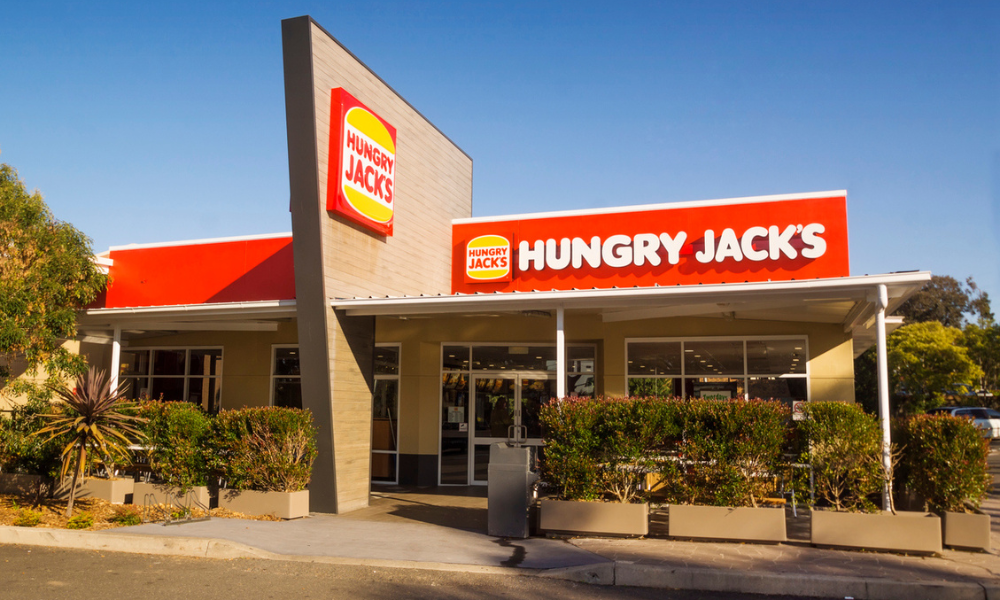
However, Hungry Jack's is liable for engaging in misleading or deceptive conduct

In a recent Federal Court of Australia judgment, McDonald’s lost its three-year trademark battle against Hungry Jack’s for using the mark “BIG JACK.”
US hamburger giant McDonald’s has been operating in Australia since 1971. As of 2020, it had over 890 outlets operating in the country and over 35,000 restaurants in more than 100 countries and territories worldwide. McDonald’s has been selling the “BIG MAC” hamburger in Australia since it started operations here.
Hungry Jacks, a franchisee of Burger King, is a competitor of McDonald’s in the quick service restaurant business in Australia and has operated here since 1971. In 2020, Hungry Jack’s began to sell hamburgers under the names “BIG JACK” and “MEGA JACK.”
McDonald’s commenced a lawsuit against Hungry Jacks, arguing that it had infringed its “BIG MAC” and “MEGA MAC” trademarks, that the court should order the removal of the “BIG JACK’S” trademark from the register, and that Hungry Jack’s had misrepresented to consumers that its BIG JACK hamburger contained 25% more Aussie beef than the BIG MAC hamburger.
Hungry Jack’s, in its crossclaim, argued that McDonald’s “MEGA MAC” trademark should be removed from the register for non-use.
Before the Federal Court, the main issue was whether the impugned Hungry Jack’s trademarks were deceptively similar to the McDonald’s trademarks. Ultimately, the court ruled that BIG JACK is not deceptively similar to BIG MAC. Likewise, the court said MEGA JACK is not deceptively similar to MEGA MAC. However, the court found that Hungry Jack’s has engaged in misleading or deceptive conduct by making the 25% more Aussie beef representation.
The court explained that deceptive similarity must be assessed based on whether there is a real, tangible danger of deception or confusion occurring. It is enough if the notional buyer would entertain a reasonable doubt as to whether, due to the resemblance between the marks, the two products come from the same source.
McDonald’s argued that there were significant visual and aural similarities between the BIG MAC and BIG JACK and that the surrounding circumstances show that the goods are ready-to-eat and relatively low-priced food, increasing the prospect that consumers will not subject the marks to detailed analysis and may be caused to wonder as to their origin because of their imperfect recollection.
The court, however, was not satisfied that the typical consumers would confuse JACK for MAC or BIG JACK for BIG MAC or be caused to wonder whether hamburger products sold under and by reference to BIG JACK come from the same source or are affiliated with the trader who sells the BIG MAC. The court pointed out that Jack is a very recognisable forename that will be known by most if not all, consumers. MAC is an unusual name or abbreviation. Although both are BIG, the idea conveyed by JACK and MAC is different. The words look and sound different, the “j” being quite distinctive of “m” both visually and phonetically.
Furthermore, the court also pointed out that McDonald’s had not presented any evidence of deception or confusion, and it had not established that Hungry Jack’s selected the BIG JACK mark to mislead customers. The court was satisfied that Hungry Jack’s purpose was not to mislead but to invite a comparison and contrast between the two products. As a result, the court concluded that BIG JACK and MEGA JACK are not deceptively similar to BIG MAC and MEGA MAC.
While McDonald’s trademark infringement case failed, the court found that McDonald’s MEGA MAC mark is not liable to be removed from the trademark register for non-use. However, registration should be amended to remove the following goods: biscuits, cakes, cookies, chocolate, coffee, coffee substitutes, tea, mustard, oatmeal, pastries, sauces, seasonings, and sugar.
In addition, McDonald’s also succeeded in its claim that in two television commercials, Hungry Jack’s had misrepresented to consumers that its BIG JACK hamburger contained 25% more Aussie beef.
Hungry Jack’s argued that the 25% Aussie beef representation conveys to consumers that a comparison is being made between the pre-cooked meat patties of the hamburgers that are being displayed in the commercial and the BIG MAC.
However, the court found that the commercial will be forced upon the viewer during a commercial break during a television show or pushed via social media. It will possibly be an uninvited distraction. The court found that the viewer is unlikely to pay close attention to every aspect of it but will form a general impression of its message--that the BIG JACK has 25% more Australian beef than the McDonald’s equivalent, the BIG MAC. The court did not believe that a consumer would pay much regard to the distinction between cooked and pre-cooked weight.
Ultimately, while Hungry Jack’s succeeded in defending the trademark infringement claim, it could face penalties under Australian Consumer Law for engaging in misleading or deceptive conduct.